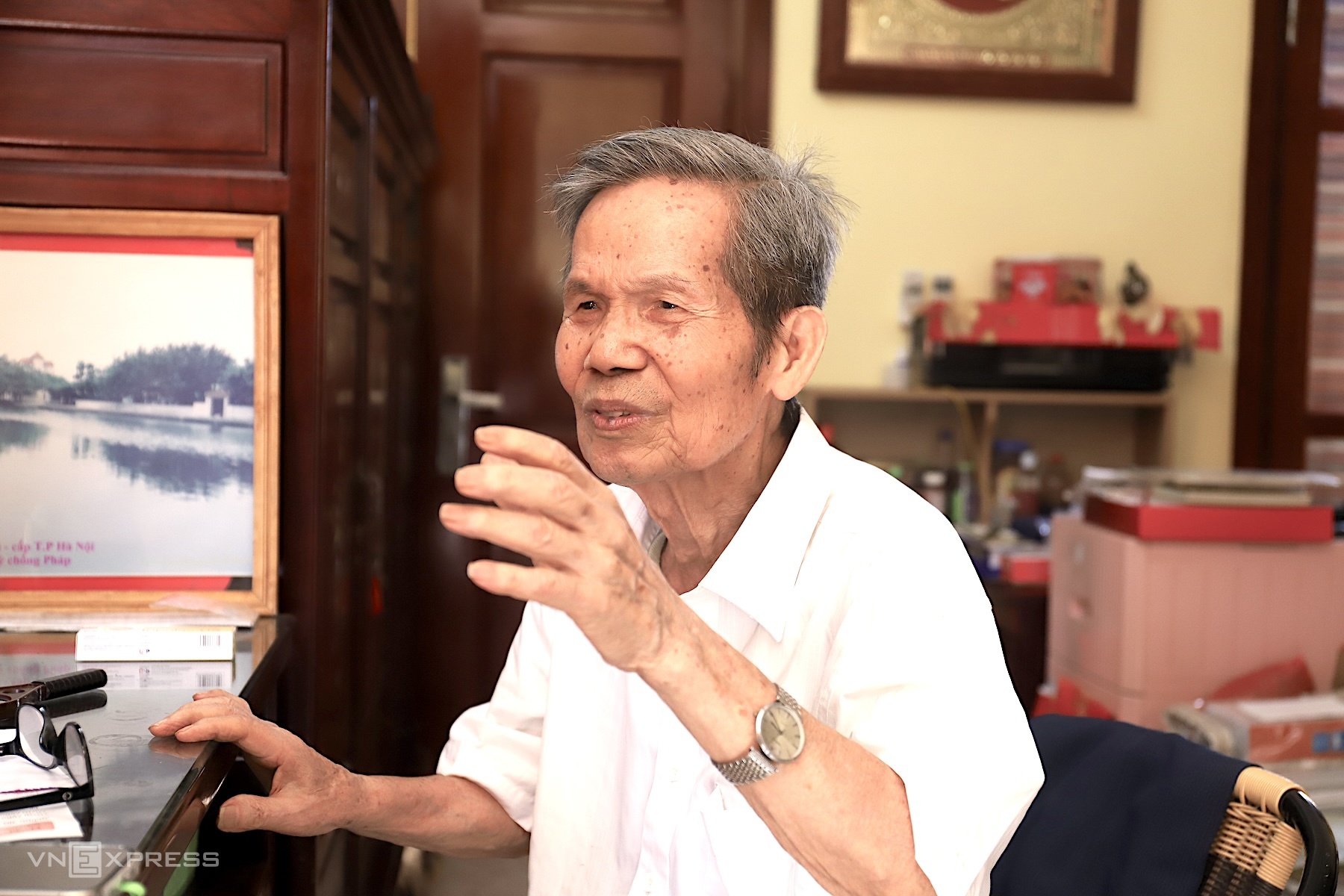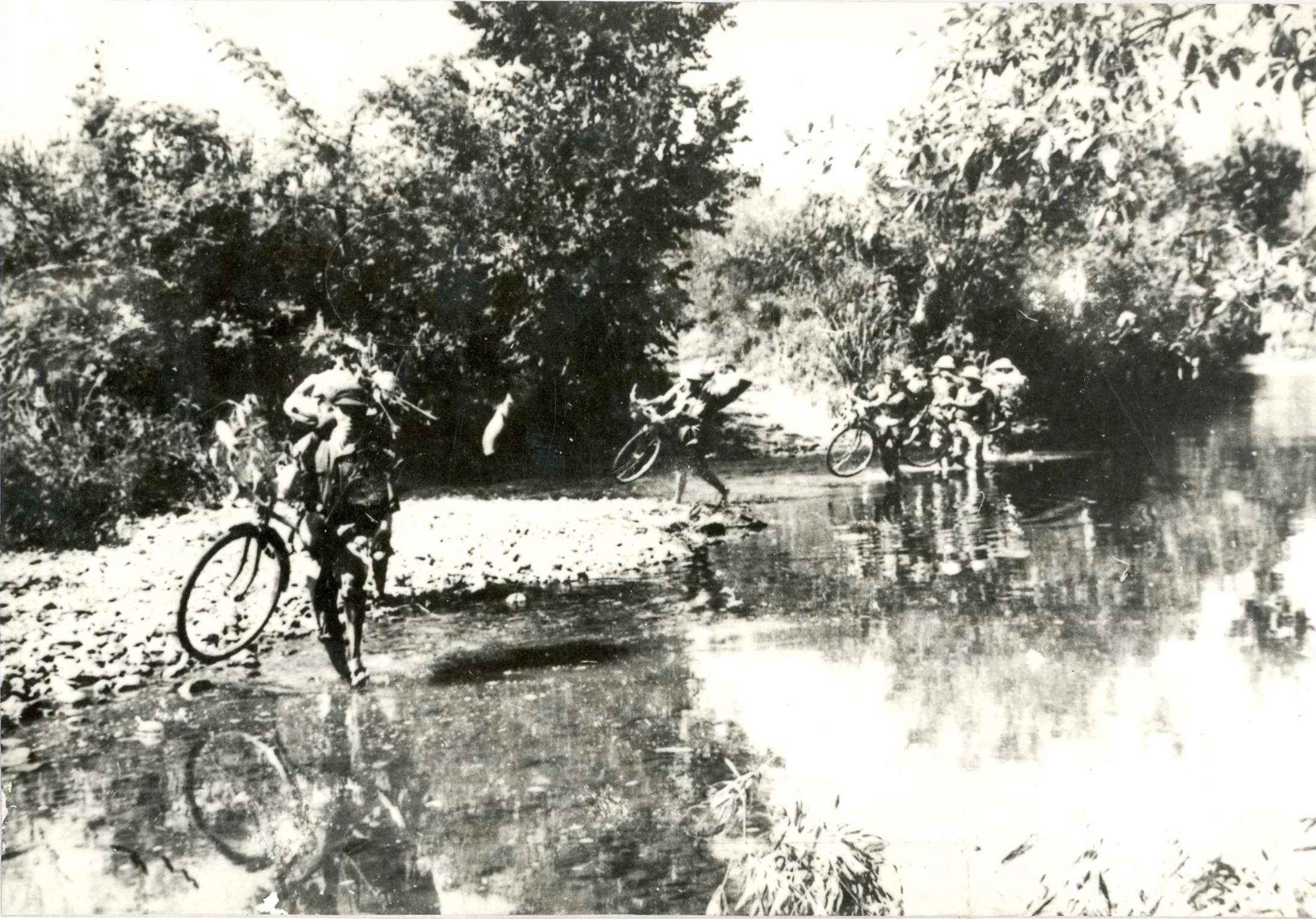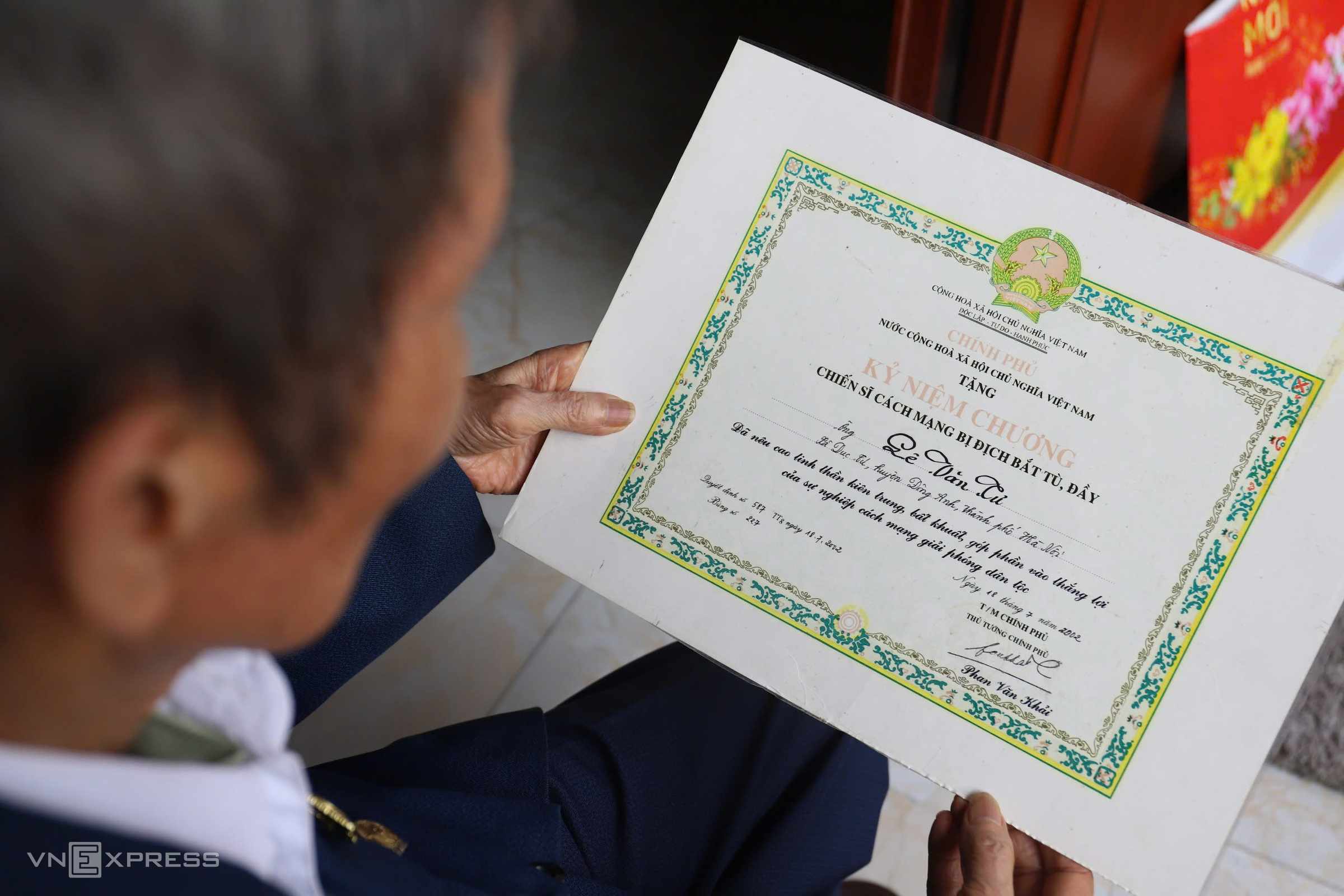At 91, Mr. Tu vividly remembers 6/12/1953, the day his ordeal began in a French colonial prison.
The 18-year-old postman had just delivered a confidential message and was hiding in a secret compartment under a pigsty in Song Thap village, Chau Khe commune, Bac Ninh province, when he was betrayed. French troops stormed the location and captured him.
They stripped him naked and paraded him through the village as a warning to others who "dared to follow the Viet Minh." In front of the villagers, they crushed his big toe with a hammer and punched out his teeth with iron-clad fists. They repeatedly interrogated him, demanding, "Where is the Bac Ninh District Committee? Who is the leader? Where is the 529th Battalion?", but were met only with silence.
Unable to extract any information, the French troops transferred him to Nha Tien prison (now 175 Nguyen Thai Hoc, Hanoi). This was one of the most notorious prisons in Indochina, where numerous revolutionary cadres, soldiers, and political prisoners from several northern provinces were held and brutally tortured. There, the young Le Van Tu endured three torture sessions each day.
The first session involved physical assault. Guards and soldiers repeatedly punched him in the face, stomach, and chest until he lost consciousness. The next involved near-drowning. Guards would submerge his head in a water tank until he nearly suffocated, then pull him out and place a wooden plank on his stomach while soldiers jumped on it, forcing the water out of his lungs. The final ordeal of the day was electroshock. One electrode was attached to the bridge of his nose, the other to his genitals. Each jolt sent convulsions through his body. After each session, the interrogation resumed.
"They beat me until they were tired, while I was reduced to a limp noodle," Mr. Tu recalled. "I would rather die than betray my comrades."
After 10 days and nights, the 18-year-old, once weighing 52 kg, was reduced to a skeletal 32 kg, covered in wounds. Having gained nothing, the enemy threw him into a cell. Six months later, in June 1954, he successfully escaped and immediately returned to the Bac Ninh Provincial Post Office to resume his duties.
"I didn't think about my wounds, I only remembered Uncle Ho's teachings: 'Communication is one of the most important tasks in the revolution, because it determines the unity of command, the distribution of forces and therefore guarantees victory,' so I had to return to the organization at all costs," he said.
Before his capture and torture, postman Le Van Tu had faced numerous life-or-death situations to maintain the flow of vital communications.
 |
91-year-old former postman Le Van Tu recounts his time delivering mail during the resistance war against the French at his home in Dong Anh, Hanoi, on the afternoon of 16/9. Photo: Nga Thanh |
Mr. Tu was the third child in a family of four siblings, all of whom participated in the resistance movement in Duc Tu commune (formerly Bac Ninh province, now Dong Anh, Hanoi). In 1951, at the age of 16, he volunteered for the postal service. He quickly understood the importance of the job, as Bac Ninh at that time was a strategic area, the northern gateway to Hanoi, and a vital transportation hub with National Highway 1A and the railway. French troops were heavily concentrated there to control the entire northern region.
"To fight the enemy, we had to transmit information. At that time, there were no telephones, and radio receivers were rudimentary, so communication relied entirely on people," he explained.
The Bac Ninh Provincial Post Office at that time had nearly 400 employees, responsible for communications for 10 districts. After a short training course, Mr. Tu embarked on missions where each journey was a gamble with his life.
Postal workers like Mr. Tu were like red blood cells flowing through the communication lines serving the resistance. They were responsible for transmitting orders and documents, connecting the rear with the front lines. Their work involved not only sneaking past enemy checkpoints but also traversing "fire coordinates," areas under constant bombardment. The danger and sacrifice of postal workers were no different from those of soldiers on the front lines. The postal service had an unwritten rule: when one fell, another had to overcome their grief and step forward. "Orders were paramount, the flow of information could never be interrupted," Mr. Tu recounted.
For each trip, he carefully studied the terrain. Some deliveries were only a few kilometers, but he often had to trek through forests and rivers for over 40 km.
"We postal workers always carried grenades, ready to sacrifice ourselves rather than let confidential documents fall into enemy hands. If captured, the mail had to be buried in the mud and destroyed," he said.
 |
A communications officer transports official documents for the Dien Bien Phu Campaign via Nho Quan, Ninh Binh, in early 1954. Archival photo |
During his four years as a wartime postman, he couldn't recall how many raids he survived or how many times he faced death. "But I was luckier than many of my comrades," he said sadly.
He mentioned fallen comrades like Mr. Nguyen Van Bau, Head of the Gia Lam Post Office, shot dead on the Red River in 1947; postman Nguyen Tien Ai, shot on a sandbar in the middle of the Cau River, his body found three days later; and two female postal workers, Nguyen Thi Chuoc and Sai Thi Hang, from the Thuan Thanh Post Office (Bac Ninh), shot and left exposed on Highway 38.
During the 9 years of resistance against the French, despite rudimentary means, relying mainly on their feet, Mr. Tu and the staff of the Bac Ninh Post Office overcame all dangers to fulfill their mission. Over 300 members of the unit were captured and imprisoned, and over 100 sacrificed their lives.
After 1954, Mr. Le Van Tu continued working in the postal service. After 1975, he spent four months in Ho Chi Minh City, assisting in the reorganization of the postal system in the south.
 |
The Medal of Revolutionary Soldiers Captured and Imprisoned by the Enemy, awarded to postman Le Van Tu by the Government in 2002. Photo: Quynh Nguyen |
For his contributions, he was awarded the Second-Class Resistance Medal in 1961, the First-Class Resistance Order in 1988, and the Medal of Revolutionary Soldiers Captured and Imprisoned by the Enemy in 2002, along with numerous other commendations.
"From postal workers like us who traversed forests and braved bombs and bullets, the Vietnamese postal industry has made remarkable strides with groundbreaking applications of science and technology. These are things that our generation could only dream of back then," Mr. Tu remarked.
Quynh Nguyen - Nga Thanh












